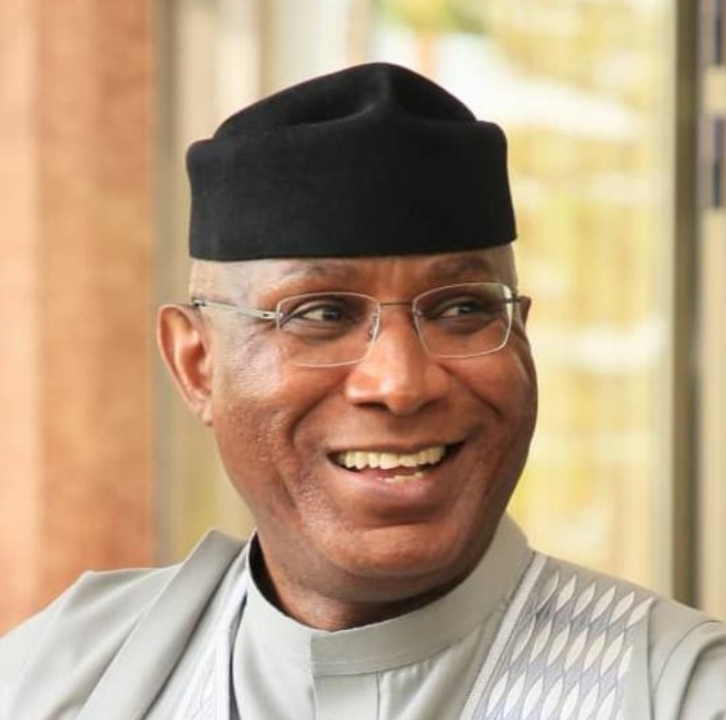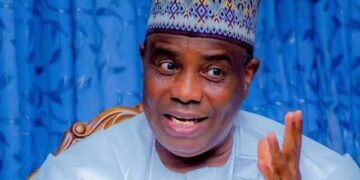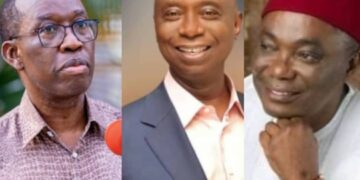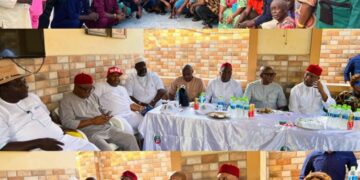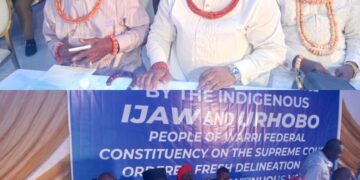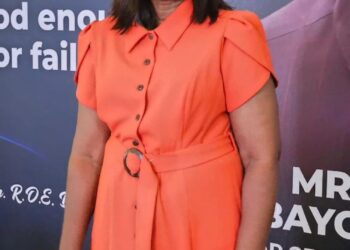By John Mayaki
The best graduation speeches are expected to challenge and leave an abiding message in the hearts of the future generation of leaders. Omo-Agege’s exhortation to the 2021 graduating class of the prestigious Benson Idahosa University where he delivered the lecture at its 16th convocation ceremony met and surpassed the standard.
Even before the speech, before he was adorned in the doctoral robe and hood, his invitation as speaker drew unanimous commendation and excitement in the university community and beyond. He is after all one of Nigeria’s rising political star, distinguished in his faithfulness to his primary constituency and spirited efforts to improve the country’s laws and institutions.
Who better than an excellent public servant in his mold to further impress on the youths the many ways their scholarship can help deepen democracy and engender sustainable developmental growth just before they are unleashed into the world as qualified graduates?
He did not disappoint, Omo-Agege. His address stirred the hearts of the young and readied their minds for the great adventure and responsibilities that lay ahead. By extension too, particularly with the amplifying powers of social media (the address was streamed live on multiple platforms and is worth watching in its entirety), he shared with the rest of the country profound insights on the fundamental flaws that ail our democracy and practical steps to overcoming them.
There were several high points and soundbites that will be re-echoed and referenced for a very long time. A particularly striking bit that captured the imagination and provoked reflection was his articulate dissection of a problem many social thinkers have framed as democracy’s biggest challenge, especially in developing nations. It is that of a political economy built on populism and the weaponization of poverty that keeps a nation in the cyclical loop of underdevelopment.
Essentially, this problem describes a situation where some, desirous of an easy route to obtain and hold power, exploit the people’s vulnerabilities and work to keep those vulnerabilities alive, instead of the loftier and altruistic goal of improving society to eliminate them. Violence is courted, poverty weaponized. Policies that perpetuate dependence, not inclusive growth and economic freedom, are pursued. Elections are deformed with the devaluing of rational debates that herald smart solutions – and reduced to an arena of violent actors. It causes disillusionment with democracy as the populace, unable to point at clear evidence of incremental progress, go in search of alternatives that play into the hands of anti-democratic actors.
The solution to this, as Omo-Agege pointed out, includes causing a shift in leadership and resource distribution in the country to promote and prioritize inclusive growth, and tackle the inter-connected problems of poverty and unemployment. The government has a central role to play, but success will be limited without the vigilance and active participation of citizens unyielding in their demand of greater accountability and crucial national reforms – especially in the electoral process through which leaders emerge. That was his challenge to the young graduates armed with the greatest tool in every democratic society – an enlightened mind.
He described it best when he said “there is a dimension of electoral reform that touches on our political economy and it is not amenable to quick-fix solutions. This is an issue to be addressed by tinkering with the very structure of the Nigerian economy and the distribution of resources among the various strata of our society. The solutions include the promotion of inclusive growth and addressing related livelihood issues such as poverty and unemployment that create armies of thugs during elections. These affect the security of the nation, and we must act together to curtail them.”
Omo-Agege also harped on the importance of credible elections. “The future of our democracy is best served by free, fair and credible elections. No question or ambiguity about this. Any nation that rejects globally recognized standards of credible and legitimate elections is not a proper democracy. Rejecting sound electoral values taints the outcomes of elections; delegitimizes elected leaders and whatever they do in the democratic space,” he said.
Omo-Agege’s address contains practical solutions to the democratic crisis sweeping across the globe and the dysfunction that has held back our nation from fulfilling its potentials. It is now up to the 2021 graduating class of Benson Idahosa University, like other youths across the country, to rise to the challenge and join in the important and collective work of nation-building. A roadmap has been provided, an example has been set. Success will depend on courage and duty.


